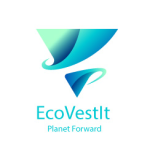Institutional Investors Shift Towards Sustainable Criteria
Institutional investors, who manage funds on behalf of clients, are increasingly prioritizing environmental preservation and ethical labor practices in their investment evaluations. Over the past two decades, sustainable investing has gained significant traction, as asset managers have recognized the necessity of incorporating sustainability factors into their decision-making processes. This shift places emphasis on environmental, social, and governance (ESG) considerations. A recent study from 2023 revealed that 80% of asset managers across North America, Europe, and Asia have adopted sustainable investment policies, a significant increase from just 20% five years prior.
Slow Adoption in South Africa Despite Legislative Changes
In South Africa, this movement towards sustainable investing has been notably pronounced since 2011, following reforms in pension fund legislation that mandate consideration of ESG factors in investment strategies. However, the pace of integrating sustainability into investment decisions has lagged behind that of other nations. My doctoral research involved interviewing 26 asset managers about their perceptions of sustainable investing, particularly their interpretations of corporate social responsibility (CSR). The majority highlighted human rights and stakeholder engagement as key CSR areas, with 15 out of 26 expressing the belief that companies within their investment portfolios ought to practice robust sustainability.
Challenges Facing Sustainable Investment Practices
Despite these insights, the research uncovered various obstacles that hinder asset managers from implementing sustainability criteria effectively. One major issue is the relatively small South African equity market, which has been declining due to an increasing number of companies exiting the Johannesburg Stock Exchange. This contraction results in fewer investment choices, complicating efforts to make impactful social investments. Additionally, there is a noticeable lack of demand from clients for sustainable investment products, compounded by insufficient data from companies on their sustainability initiatives, which complicates informed decision-making.
Need for Improved Data and Education
The interviewees pointed out that integrating CSR practices into institutional investment strategies is fraught with challenges. Seven respondents noted that the limited size of the local equity market restricts the potential for social investment impact. One respondent remarked on the difficulty of creating a fund focused solely on environmentally responsible companies due to a scarcity of viable options. Furthermore, the demand for sustainable investment offerings remains low, as few asset owners and beneficiaries actively seek such products. Another hurdle is the inconsistency in sustainability performance data among providers, which makes it difficult to assess companies accurately. Unique legal frameworks in South Africa, particularly those related to broad-based black economic empowerment, also complicate the landscape, as global ESG databases often overlook this legislation.
Strategies for Enhancing Sustainable Investment
To foster genuine progress, education plays a crucial role. Fund managers and their clients need to be more knowledgeable about sustainable investment practices. The Association for Savings and Investment South Africa can contribute significantly by providing educational resources and workshops aimed at enhancing understanding of sustainable investment among stakeholders. Additionally, establishing consistent metrics tailored to the South African context would facilitate the evaluation and comparison of companies’ sustainability efforts. Some interviewees acknowledged the Johannesburg Stock Exchange’s 2022 Sustainability Disclosure Guidance as a positive development, offering a structured framework for companies to enhance their sustainability reporting and align with global best practices.
Future Directions for Asset Managers
Recent standards established by the International Sustainability Standards Board in 2023, which outline the requirements for sustainability-related financial disclosures, are also promising advancements. These standards aim to promote more uniform, comprehensive, and verifiable information regarding sustainability risks and opportunities. Another beneficial initiative could involve creating a social impact metric that takes into account specific national social considerations, such as broad-based black economic empowerment. It is essential for South African asset managers to focus on investments that support sustainable development, particularly in infrastructure projects that address urgent issues like unemployment. Utilizing resources such as the Responsible Investment and Ownership guide can provide actionable strategies for integrating corporate sustainability into investment decision-making while educating clients on the advantages of sustainable investing.

